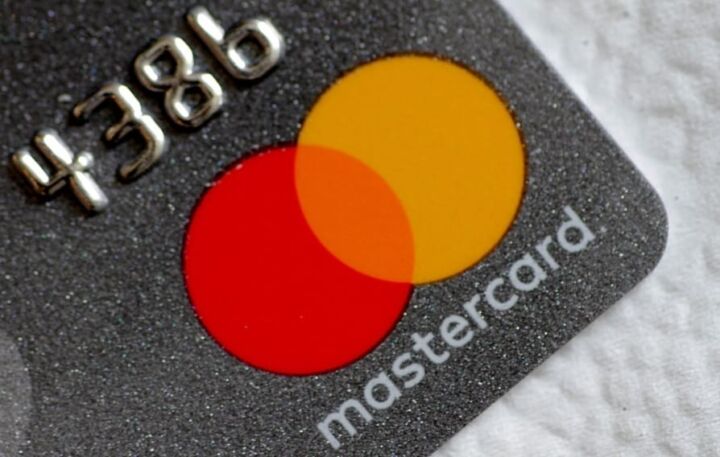Mastercard has announced a strategic partnership with ASA Microfinance Bank (ASA) to enhance digital and financial inclusion among smallholder farmers across Nigeria through innovative technology-driven solutions. The collaboration aims to empower farmers with access to digital payment systems, credit facilities, and data-driven tools that will help improve productivity and income.
The initiative is part of Mastercard’s broader commitment to accelerating the digital transformation of Africa’s agricultural ecosystem by connecting underserved communities to financial services. Speaking on the partnership, Mark Elliott, Division President for Sub-Saharan Africa at Mastercard, said the collaboration underscores the company’s mission to “build a more inclusive digital economy where everyone—especially those in rural areas—can thrive.”

Elliott explained that the partnership will integrate Mastercard’s Community Pass platform, a digital infrastructure designed to provide farmers with a digital identity and enable access to critical services such as payments, insurance, and agricultural inputs. Through the platform, farmers can securely receive payments for produce, build a transaction history, and gain access to affordable credit from ASA and other financial partners.
He said, “We are proud to partner with ASA Microfinance Bank to strengthen the backbone of Nigeria’s economy—its farmers. This partnership will enable them to transact safely, access resources conveniently, and grow sustainably through digital innovation.”
On her part, Mrs. Mitali Sengupta, Managing Director of ASA Microfinance Bank Nigeria, said the collaboration with Mastercard aligns with ASA’s commitment to promoting financial inclusion and supporting smallholder farmers, who often face barriers to accessing credit and markets.
“Through this partnership, we will be able to leverage Mastercard’s technology to reach more farmers, especially women and youth, with affordable financial services. We believe digital inclusion is key to unlocking agricultural growth and rural prosperity,” Sengupta stated.
The initiative will focus on providing farmers with digital wallets, prepaid cards, and mobile payment options, allowing them to make and receive payments without relying on cash. This will not only reduce transaction risks but also create a transparent financial trail that can be used to assess creditworthiness and facilitate access to microloans.
According to Mastercard, the project also supports Nigeria’s National Financial Inclusion Strategy (NFIS) and aligns with the Central Bank of Nigeria’s (CBN) goal of deepening digital finance in rural communities. The company emphasized that enabling digital access for farmers can have a multiplier effect on rural development, as it opens opportunities for trade, investment, and improved livelihoods.
Agricultural experts have commended the initiative, describing it as a timely intervention in addressing long-standing challenges in Nigeria’s agricultural value chain. They noted that smallholder farmers, who account for over 70% of the nation’s agricultural output, often lack access to financial tools and technologies that can help them scale operations.
With Mastercard’s digital infrastructure and ASA’s grassroots network, the partnership is expected to reach thousands of farmers in its initial phase, with plans to expand across multiple states in the coming months.
The companies reaffirmed their joint commitment to driving innovation in Nigeria’s agriculture sector and building a resilient, technology-enabled farming community.
Elliott concluded, “At Mastercard, we believe that when farmers are empowered digitally, they become not just food producers but active participants in the digital economy. Together with ASA, we are helping to build that future—one farmer at a time.”
Furthermore, Mastercard disclosed that the collaboration will extend beyond financial inclusion to encompass climate-smart agriculture. Farmers will receive access to data on weather patterns, soil conditions, and market prices, allowing them to make informed decisions and improve resilience against climate change.
ASA Microfinance Bank also plans to deploy field officers who will serve as digital ambassadors, guiding farmers on how to use digital wallets and electronic payment systems efficiently. This will significantly reduce cash-based transactions in rural communities and promote transparency in agricultural trade.
Both institutions are optimistic that the partnership will stimulate rural economic growth, enhance agricultural productivity, and contribute meaningfully to Nigeria’s food security goals. With the combined expertise of Mastercard’s digital solutions and ASA’s grassroots financial network, the collaboration is set to redefine the future of smallholder farming and rural development in Nigeria.
Support InfoStride News' Credible Journalism: Only credible journalism can guarantee a fair, accountable and transparent society, including democracy and government. It involves a lot of efforts and money. We need your support. Click here to Donate
